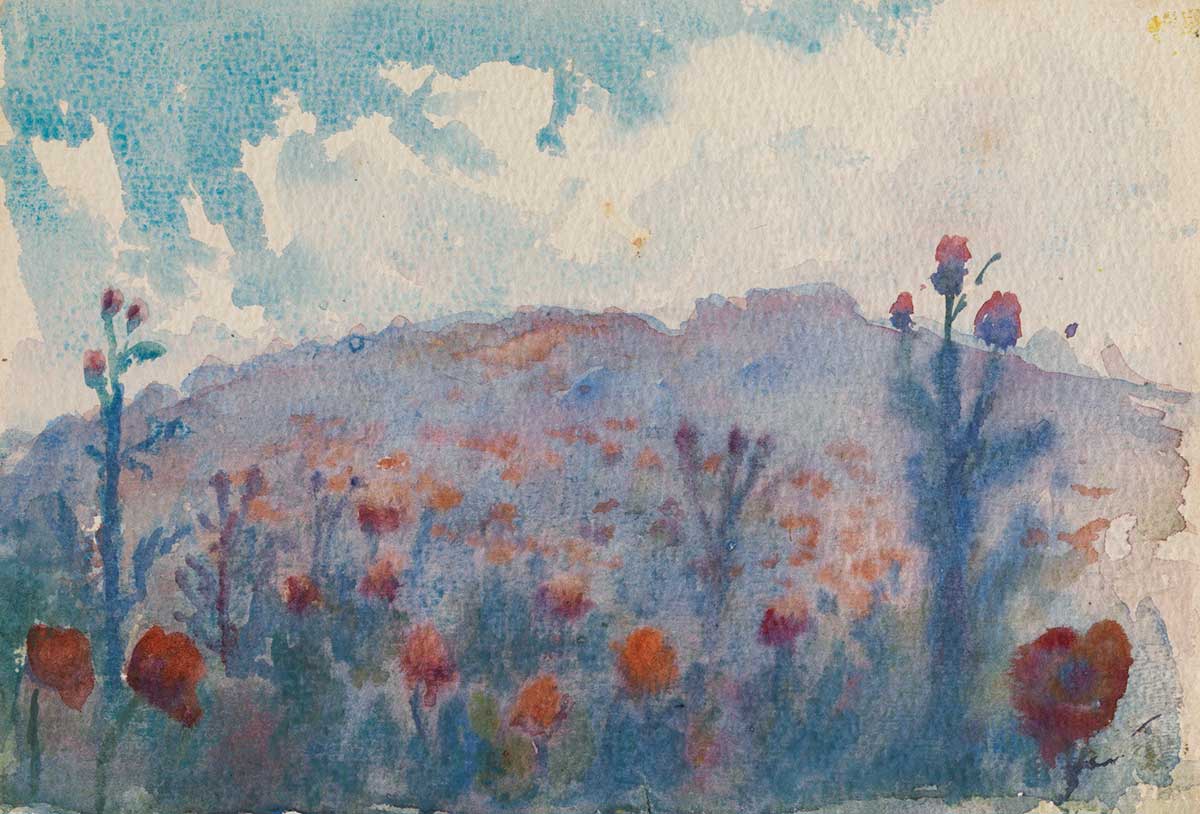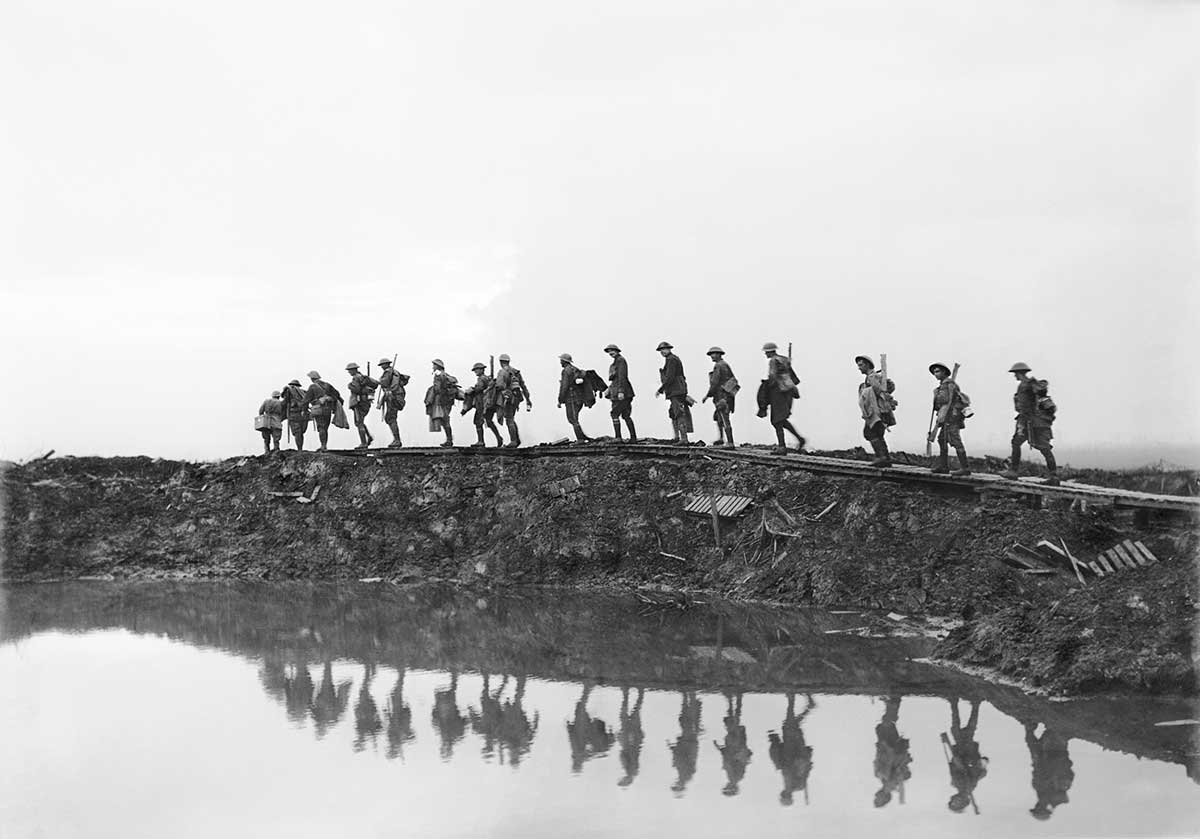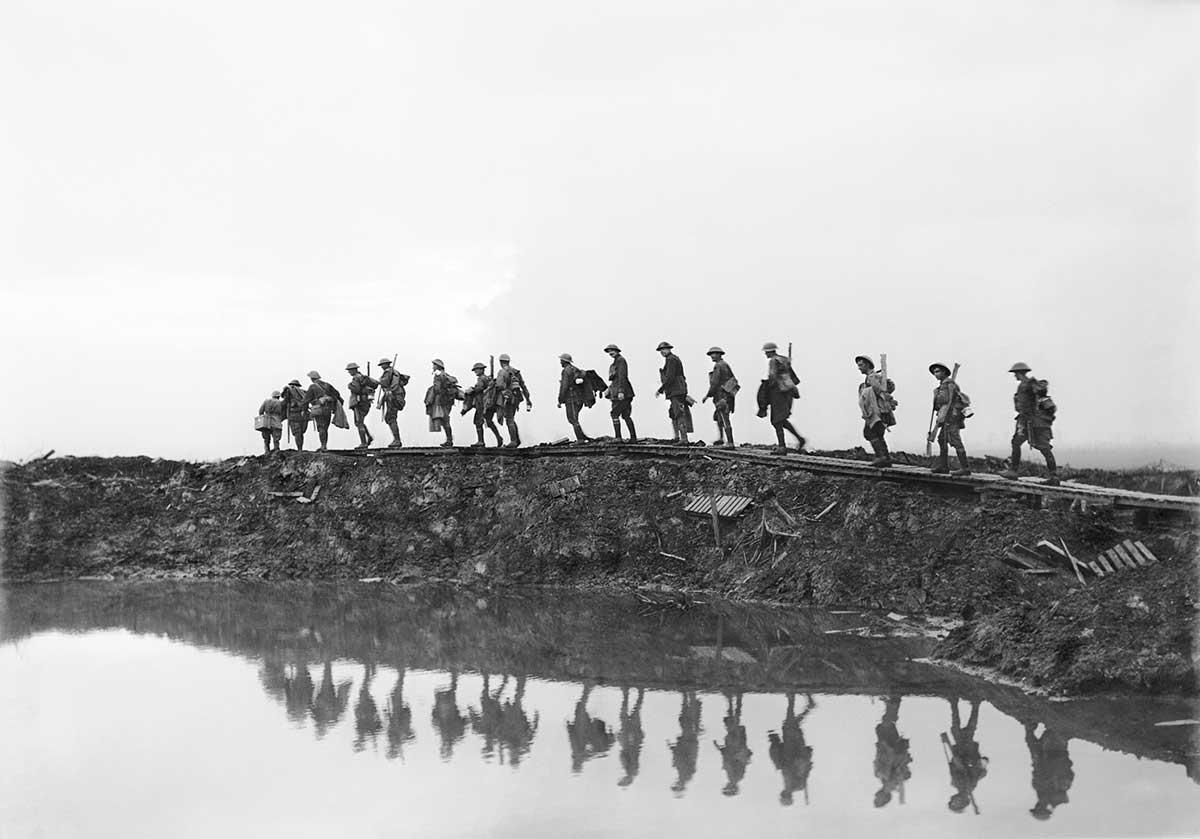Learning module:
War correspondents
War correspondents
26. The final interview

As you approach the office, you notice an ambulance outside. As you enter the tall grey building, a stretcher is wheeled out, with a body covered in a white sheet on it. Your colleagues are all standing around, tears on their faces.
The Editor-in-Chief of the Age, Gottlieb Schuler, has passed away. The next few days are a blur — attending the funeral, writing an obituary, mourning and supporting your workmates. A week after the death Mr Callister calls you to his office for what turns out to be the last time.
‘You’re no youngster anymore. You’re actually my longest serving employee now! But with Mr Schuler gone I think my time has come to retire now while I can still enjoy it.’
He smiles and offers you a seat.
‘Listen, the Board have loved your reporting ever since you came to us all those years ago. They want you to apply for the Editor-in-Chief position. With me and Mr Schuler going, they want someone with experience of the newspaper at the helm, not some outsider.’
You’re flattered, excited and nervous all at the same time! You, Editor-in-Chief! Who would have thought? You quickly agree to apply for the position.
The next day Lucinda Clarkson, Mr Callister’s secretary, calls you.
‘You’ve got an interview in two days. Boardroom, 8 am sharp. Mr Dawson will be leading the interview panel. But be warned, they’re going to ask you a lot of questions about your experience of the Great War and its aftermath.’
You thank her for the warning. You spend the next few days engrossed in your old notes and articles, studying everything you learned about the war.
On Tuesday morning, you make your way up to the boardroom. You talk for about an hour with the panel, telling them colourful stories of your years in the field as a journalist.
Mr Dawson, Chair of the Board, says, ‘We like what we see. But we do have a few written questions for you. If you can answer them we will seriously consider your application to be the next managing editor.’
He hands you a stack of blank paper, then another with some typed questions on it. You take a seat in a faded brown chair at the side of the boardroom and begin writing. A test with a great outcome if you do well!
Answer the following questions in full.
1. Categorise the reasons Australians enlisted to fight in the Great War into: economic and social.
| Economic | Social |
|---|---|
2. Create a table showing the consequences of the Gallipoli campaign.
| Positive consequences | Negative consequences |
|---|---|
3. Categorise the different causes of the war into: economic, political, technological or social.
| Economic | Political | Technological | Social |
|---|---|---|---|
4. Why were Australian soldiers moved from the Middle East to the Western Front?
5. Why did soldiers consider life in the trenches so miserable?
6. Why did the USA join the war?
7. How did women’s roles in society change after the war ended?
8. Summarise the main arguments that were used in favour of conscription.
9. List three impacts that the war had back home in Australia.
You submit your written answers. The interview over, you go home.
The next morning you receive a phone call and are told to come back to the boardroom.
You march up the stairs. As you walk in, someone pops a bottle of champagne and all your workmates are there, clapping and cheering. You got the job! You are the new Editor-in-Chief of the Age. After years of work and improving your skills, you have made it to the top of the newspaper. Congratulations!







